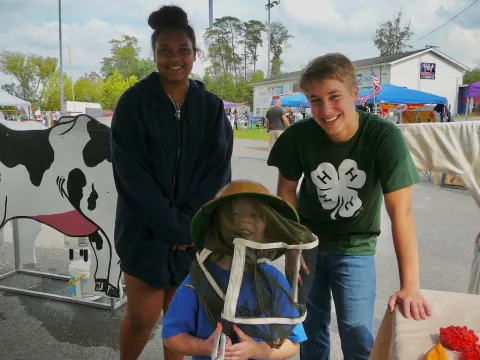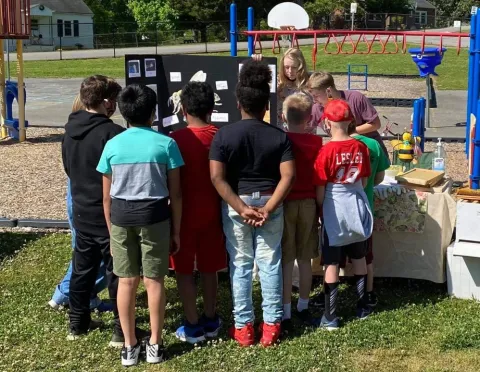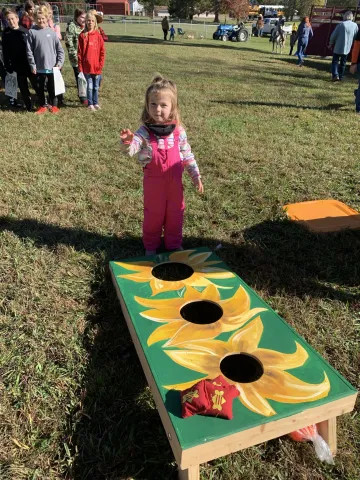The Honeybee Action Plan

Jessica Garcia left and Kaleb Hannah on the right
By Jessica Garcia
4-H Ag Science Team Member
Bees! Most people are not fond of bees. But perhaps it is because bees, specifically the honeybee, are very misunderstood creatures, insects to be precise.
Of course, we like the cute bumble bees we see in story books, but most people view bees as pesky little intruders on our summer picnics or interrupting the tending of our flower beds; and of course to some, the bee is a small but dangerous enemy, for those who are allergic to its sting.
Prior to my recent experience with the 4-H Agriculture Science Team, bees were merely a nuisance but now I understand they are amazing little creatures. Honeybees, while misunderstood, are a vital part of the health and wellbeing of the agricultural community.
In March of 2021, The National Agricultural Science Summit, afforded our 4-H team members, which included our extension agent Shannon Dewit, Kaleb Hanna, Meradeth Whitley and me, Jessica Garcia, to participate in what is known as The Dolphin Tank.
The Dolphin Tank allows various 4-H teams around the country to present a plan to solve a problem recognized within their community. Our team submitted an action plan regarding the decreasing population of honeybees and the potential problems our community faces as a result.
After being selected by the judges of The Dolphin Tank, our team was able to submit a “County Action Plan,” which gave us the opportunity to teach elementary children in our area about this important topic.
As a team we immediately began having meetings to come up with ideas on how we could reach children and the families of our community, to help raise awareness of the honeybee. It was our goal to help people learn more about the vital role the honeybee has, in keeping our crops healthy and plentiful.
Our team went to Farm Day down at the farm and to the farmers market in order to reach as many people as we could to share about the honeybee and the important work they do in pollination of the various plant crops in our farming community. We also showed the children what a honeybee hive looks like and how it functions and we incorporated some fun activities which included dressing in a beekeeper’s suit, playing a honeybee-themed corn hole board and coloring pages.
Of course the honey tasting was everyone’s favorite part.
Farmers and communities around the country are impacted by the decreasing population of honeybees. Many factors are causing this decrease. We know that educating our community will help to have future conversations about how we now can help protect the honeybees, as they have always helped us.
The parents and the children who attended our events responded well to our presentations and were grateful for the opportunity to think more about this important topic and get some questions answered about the honeybee.
Our team enjoyed the opportunity to share what we had learned and are thankful we were able to raise awareness about the honeybee.
- Log in to post comments

